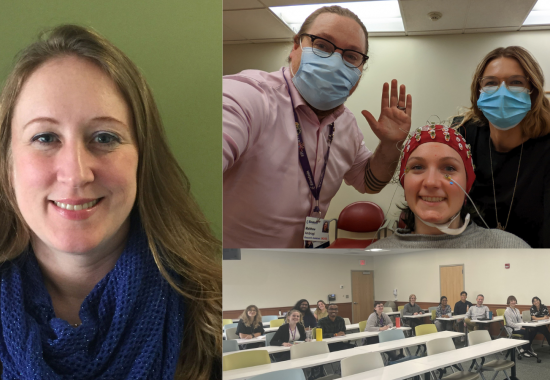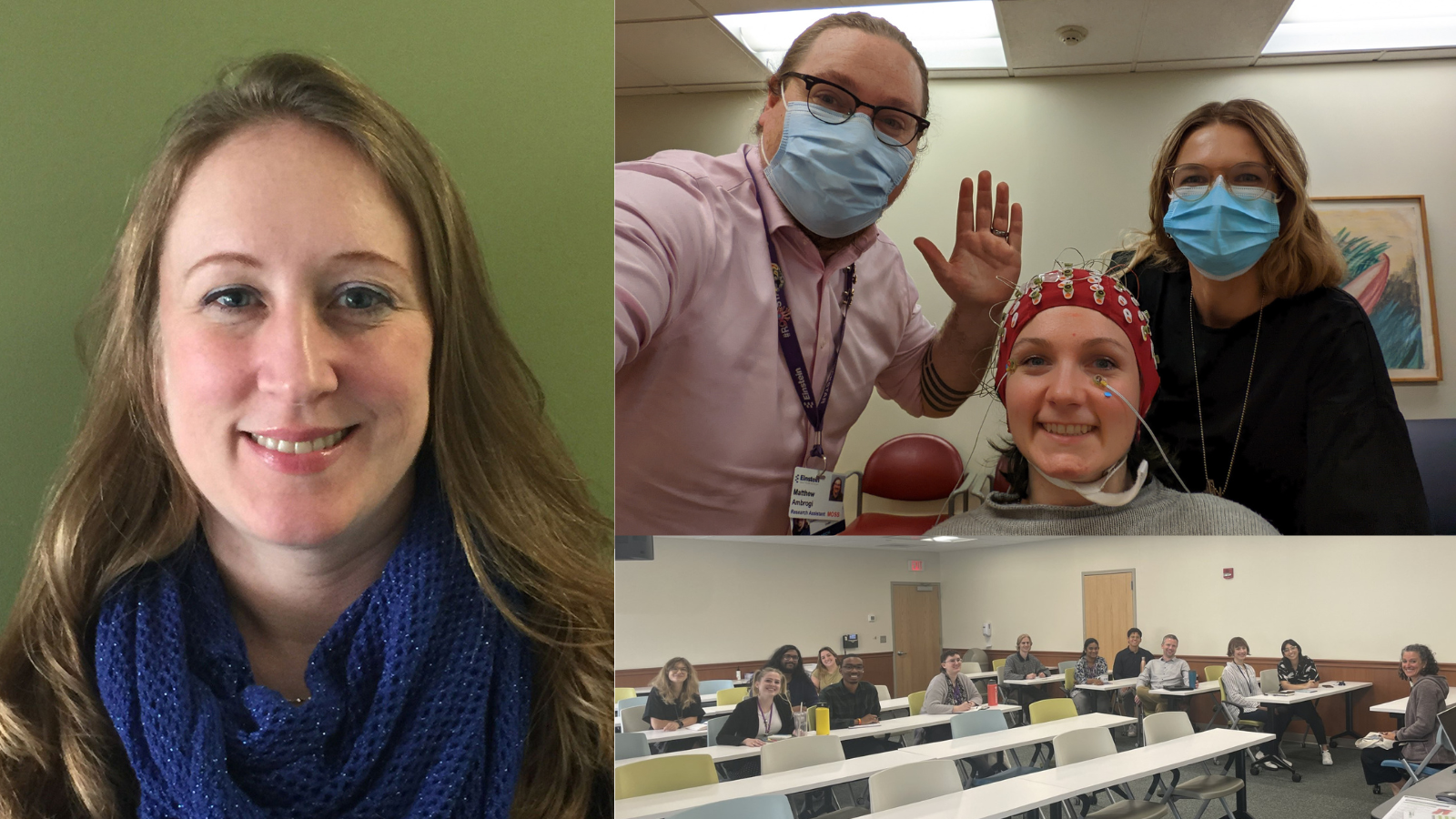MRRI is thrilled to announce that Erica Middleton, PhD, has been awarded a five-year R01 grant from the National Institute On Deafness And Other Communication Disorders of the National Institutes of Health to continue her research developing a theory of learning for aphasia rehabilitation that leverages retrieval practice.
Aphasia is a language disorder that commonly occurs after stroke or other brain injury. It can impact a person’s ability to produce or comprehend spoken, written, or gestured communication. Maximizing the efficiency and effectiveness of rehabilitation is critical, and Dr. Middleton, Institute Scientist and Director of the Language and Learning Laboratory at MRRI, is working to improve our understanding of how people with aphasia respond to different kinds of learning experiences to inform future treatment approaches. In particular, she is applying learning principles of retrieval practice to develop a theory of how people with aphasia relearn lost language skills (such as word retrieval) during rehabilitation.
Dr. Middleton began this NIH-funded project in 2017, and her work has thus far identified important parameters of interventions that result in greater improvements in performance. For example, Dr. Middleton and her team have identified that word retrieval problems in people with aphasia are improved more when treatment involves retrieval practice-based naming (where they attempted to name an object and received feedback), compared to errorless learning (where they were provided with the name of the object and repeated the name). Further, greater improvements occurred with correct retrievals during retrieval practice (versus incorrect retrievals) and when the spacing between an item’s trials was greater.
To build on these promising findings, this grant renewal will focus on a retrieval practice-based naming treatment termed criterion learning. With criterion learning, an item must be correctly retrieved a certain number of times in a training session to be removed from the item queue. This is an inherently efficient approach that incorporates the learning benefits of correct retrievals and spaced out retrieval practice for an item.
Over the next five years, Dr. Middleton and her team will examine different parameters to optimize a criterion learning-based treatment for aphasia rehabilitation, including the number of training sessions needed and whether grouping related items is beneficial. Her upcoming research studies will also preliminarily evaluate the efficacy of the criterion learning-based treatment in development, shed light on underlying neural mechanisms that may underlie differences in responses to treatment, and investigate whether the benefits of this approach extend beyond word retrieval to word comprehension as well.
The studies funded by this grant will provide valuable information that will help researchers and clinicians develop the best treatments possible for people who are living with aphasia.



6 comment on “Dr. Erica Middleton Receives NIH Grant to Further Study Retrieval Practice in Aphasia”